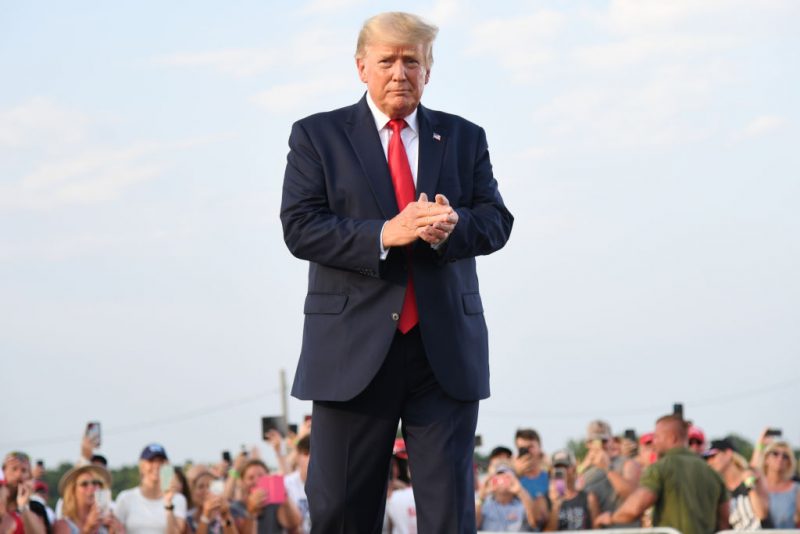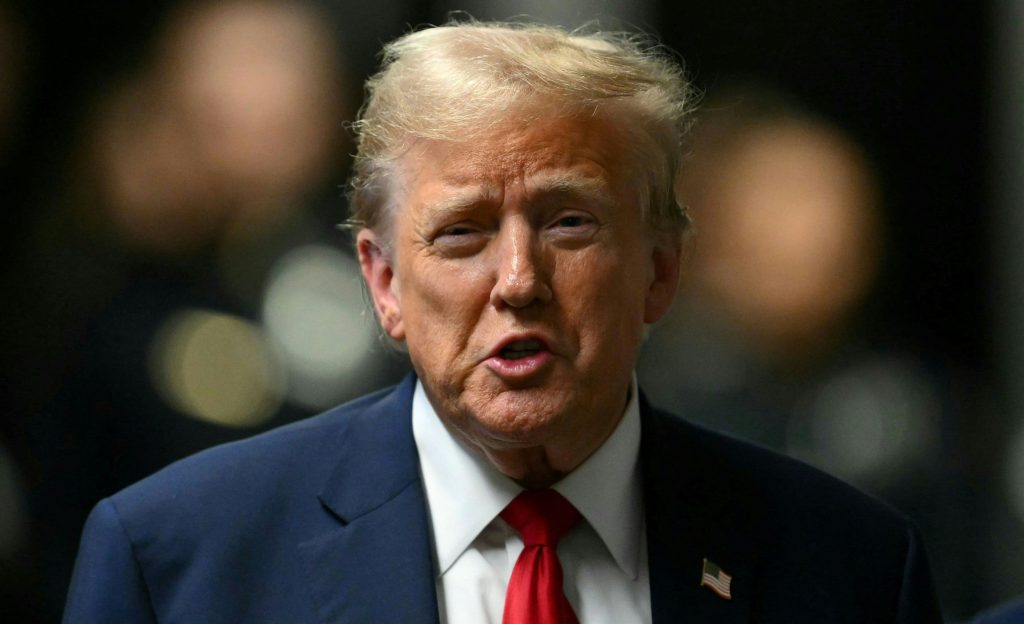
John Rossomando
Monday, May 20, 2024
Alumni of the Trump national security team and other leading conservative thinkers provides clues for what foreign policy in a second Trump term might look like in a new book.
The book’s authors provide a compelling case for an America First foreign policy noting that the “foreign policy establishment … often keeps the United States mired in endless wars to the detriment of the country by putting idealistic principles ahead of the interests of the American people” and winning. This must end in their view. Putting American interests first will dominate the agenda Donald Trump returns to the White House next year.
Fred Fleitz, vice chair of the America First Policy Institute’s (AFPI) Center for National Security and former National Security Council (NSC) chief of staff, led the team that authored the manifesto titled “An America First Approach to U.S. National Security.”
Fleitz; Lt. Gen. Keith Kellogg, AFPI’s co-chair of the Center for National Security; Congressman Mike Waltz; former Energy Secretary Rick Perry, former CIA Operations Officer Sam Faddis, Ellie Cohanim; former Deputy Special Envoy to Monitor and Combat Anti-Semitism; and former Trump Acting DHS Secretary Chad Wolf among others contributed to the effort.
The Abraham Accords typified the Trump administration’s successful strategy that could be replicated in a second term. It brought Israel and its Gulf Arab neighbors closer together to resist Iranian aggression. It contributed to a short, unprecedented period of Mideast peace during which Islamist terrorism was all but forgotten on the global stage.
“…the Trump Administration prioritized building a close relationship with America’s allies in the region, especially Israel and Saudi Arabia. President Trump realized that it is in America’s interests to ensure that its principal allies in the region are strong and secure, both economically and militarily, because a secure Middle East keeps the United States out of new and endless wars in the region,” Cohanim said.
Faddis argues that the interests of the American people should come before all else, “The America First approach to government means responsible and ethical management that puts the American people and their interests first. This includes ensuring that tax dollars are spent prudently for government agencies that reflect American values,” Faddis writes.
Woke ideology has replaced victory and winning as the goal of American foreign policy. American post-Cold War dominance is gone.
Fleitz and his co-authors, including Kellogg, contend that America needs to return to former President Donald Trump’s foreign policy that prioritized “peace through strength” and putting the interests of the American taxpayers before all else. The Russo-Ukrainian War is a tragic result of Joe Biden’s adoption of appeasement toward Putin.
“The war in Ukraine is an avoidable tragedy that resulted from President Biden’s incompetence as a world leader and his chaotic foreign policy. The war has divided Americans and the conservative movement over what America’s involvement in this conflict should be and how the Ukraine War affects European and global stability,” Fleitz and Kellogg write. “President Biden’s poor leadership as commander in chief, a weak national security team and national security policies, combined with a complete misunderstanding of Russia, Putin, Ukraine, and NATO, established conditions that led Putin to order the February 2022 invasion of Ukraine and conduct an overt war of aggression in defiance of the United States and the international community.”
Preventing wars from breaking out before they happen is a cheaper alternative to trying to play catchup, something that Joe Biden has not learned.
“The U.S. military has a clear mission: deter our nation’s adversaries and, when necessary, fight and win our nation’s wars. This two-fold objective of warfighting and deterrence is vital to protecting our vital national interests and keeping Americans safe,” Kellogg writes. “America’s ability to maintain credible deterrence is made possible by our having the world’s most powerful military force on earth and a Commander-in-Chief who has the competence, resolve, and will to use this force when necessary. This credible deterrence is crucial to thwarting our nation’s adversaries and keeping our nation out of unnecessary wars.”
U.S. foreign policy must return to the philosophy championed by former Defense Secretary Caspar Weinberger and Gen. Colin Powell of only becoming involved in wars when clear, winnable objectives in America’s national interest can be achieved, writes Congressman Mike Waltz.
“… [T]he Weinberger Doctrine said, in short, that the U.S. military should only commit military power if its vital national interests were threatened; that power should only be used overwhelmingly, with the intention to win; with clear political and military objectives; and only as a last resort. In Iraq, the first time (Desert Storm), the result was an overwhelming success, and the triumvirate of military, political, and economic power presaged the new American age,” Waltz writes. “It is clear now that this moment was wasted. In an era of unsurpassed national power, the mission of the United States began to go astray.”
From Afghanistan to Niger to Ukraine, Biden’s leadership has undermined America’s credibility and emboldened aggressors. He let his personal interests come first particularly in Afghanistan where he wanted to set the narrative that he was the president who ended America’s longest war after 20 years. Now ISIS and Al-Qaida have returned and threaten stability.
Biden’s failure to deter China leaves Taiwan vulnerable.
Stephen Yates and Adam Savit, who run AFPI’s China Initiative write, “America requires a robust military presence in the Western Pacific to maintain its strength and independence amid the China threat. A credible deterrent and peace through strength are the only proven strategies for avoiding war.”
Restoring deterrence likely will dominate policy decisions should Trump return to power.
John Rossomando is an internationally seen National Security Researcher and a regular contributor to OAN’s Tipping Point with Kara McKinney. He served as a Senior Analyst for Defense Policy with the Center for Security Policy and Senior Analyst for Counterterrorism at The Investigative Project on Terrorism for eight years. His work has been featured in numerous publications such as The American Thinker, Daily Wire, Red Alert Politics, CNSNews.com, The Daily Caller, Human Events, Newsmax, The American Spectator, TownHall.com, and Crisis Magazine. He also served as senior managing editor of The Bulletin, a 100,000-circulation daily newspaper in Philadelphia, and received the Pennsylvania Associated Press Managing Editors first-place award in 2008 for his reporting.

